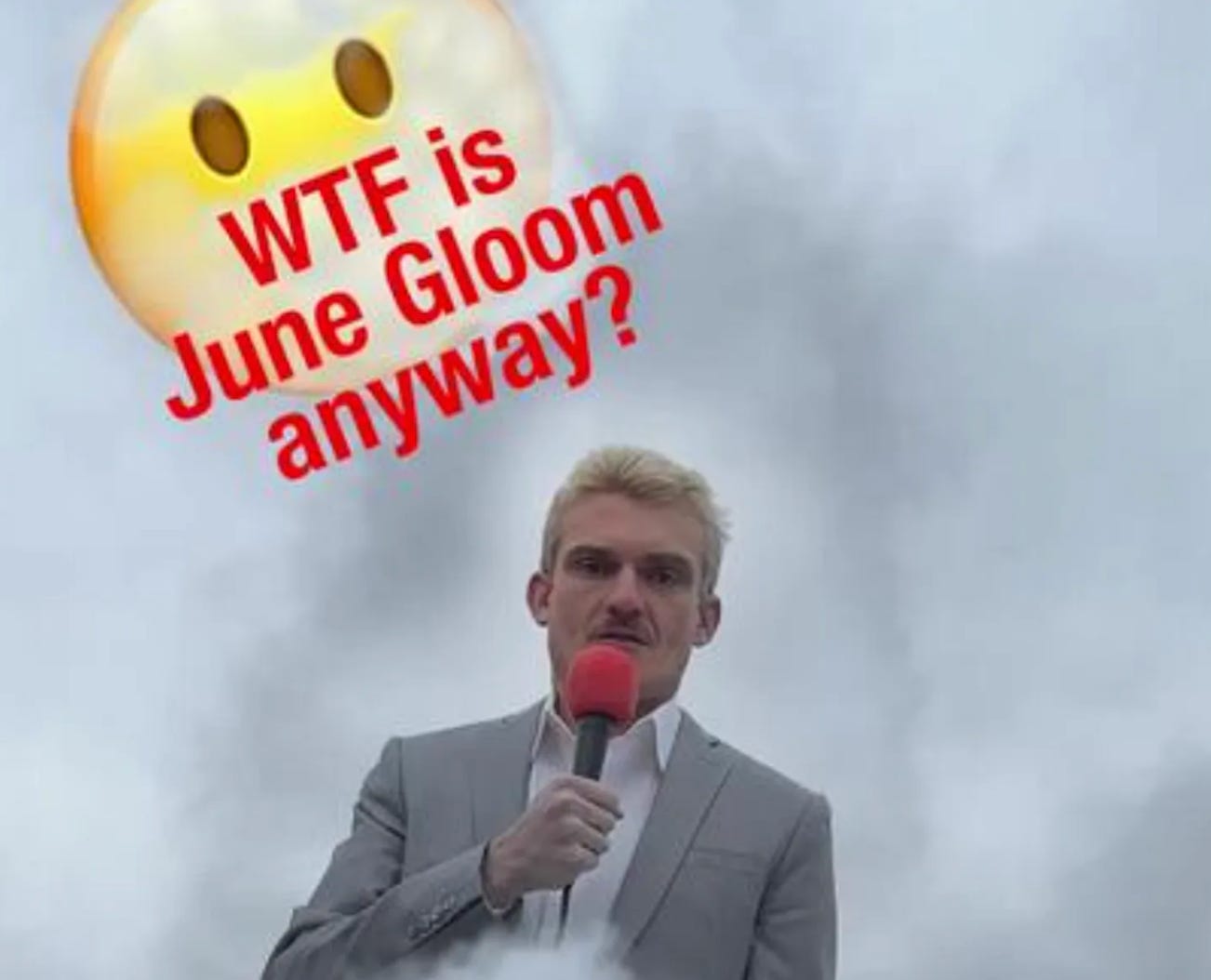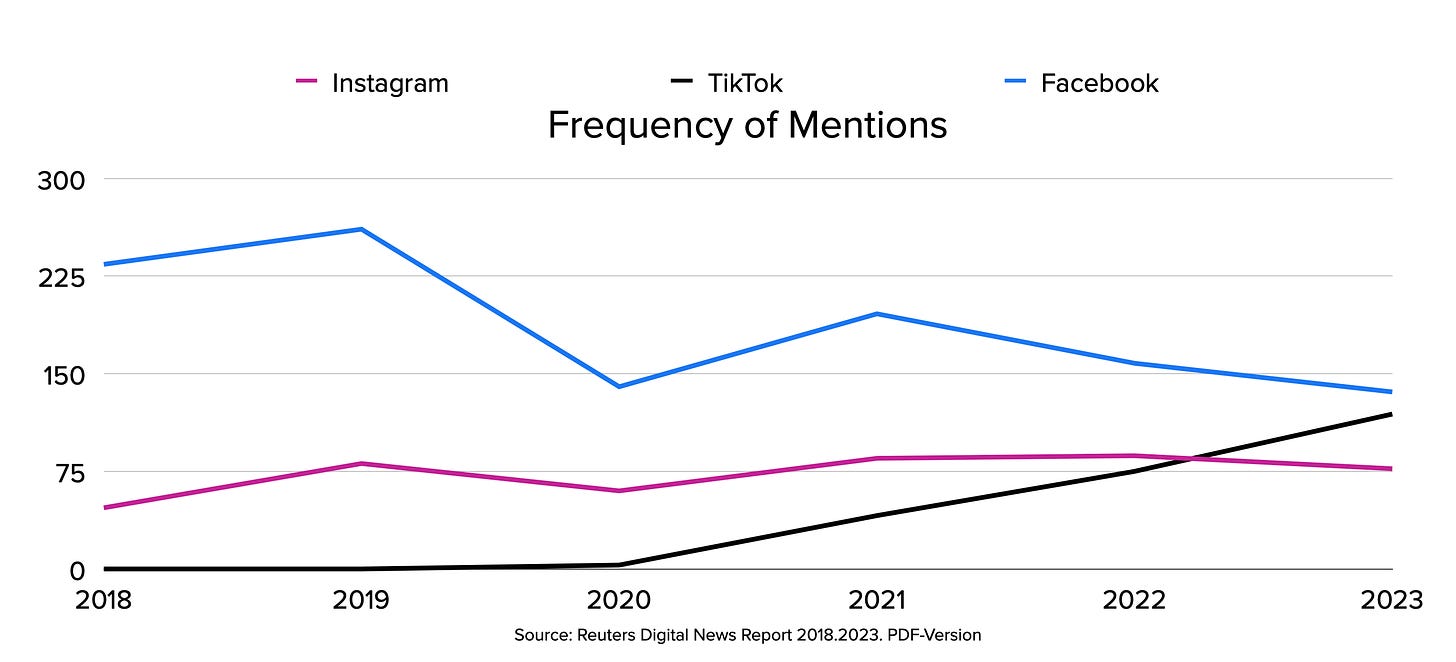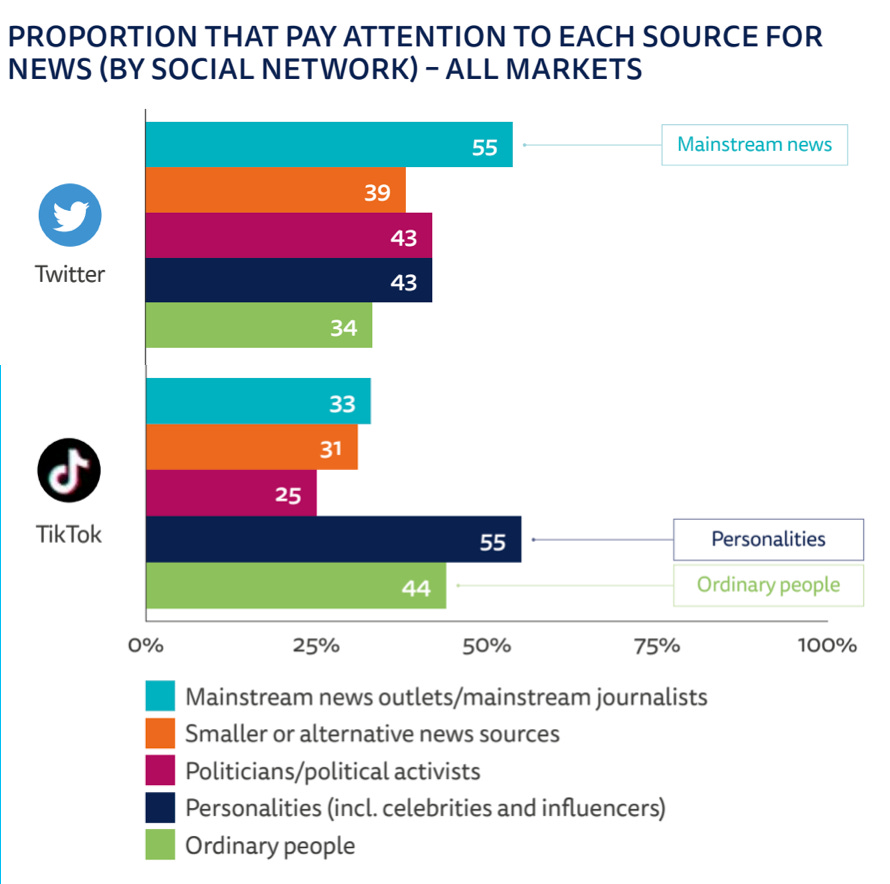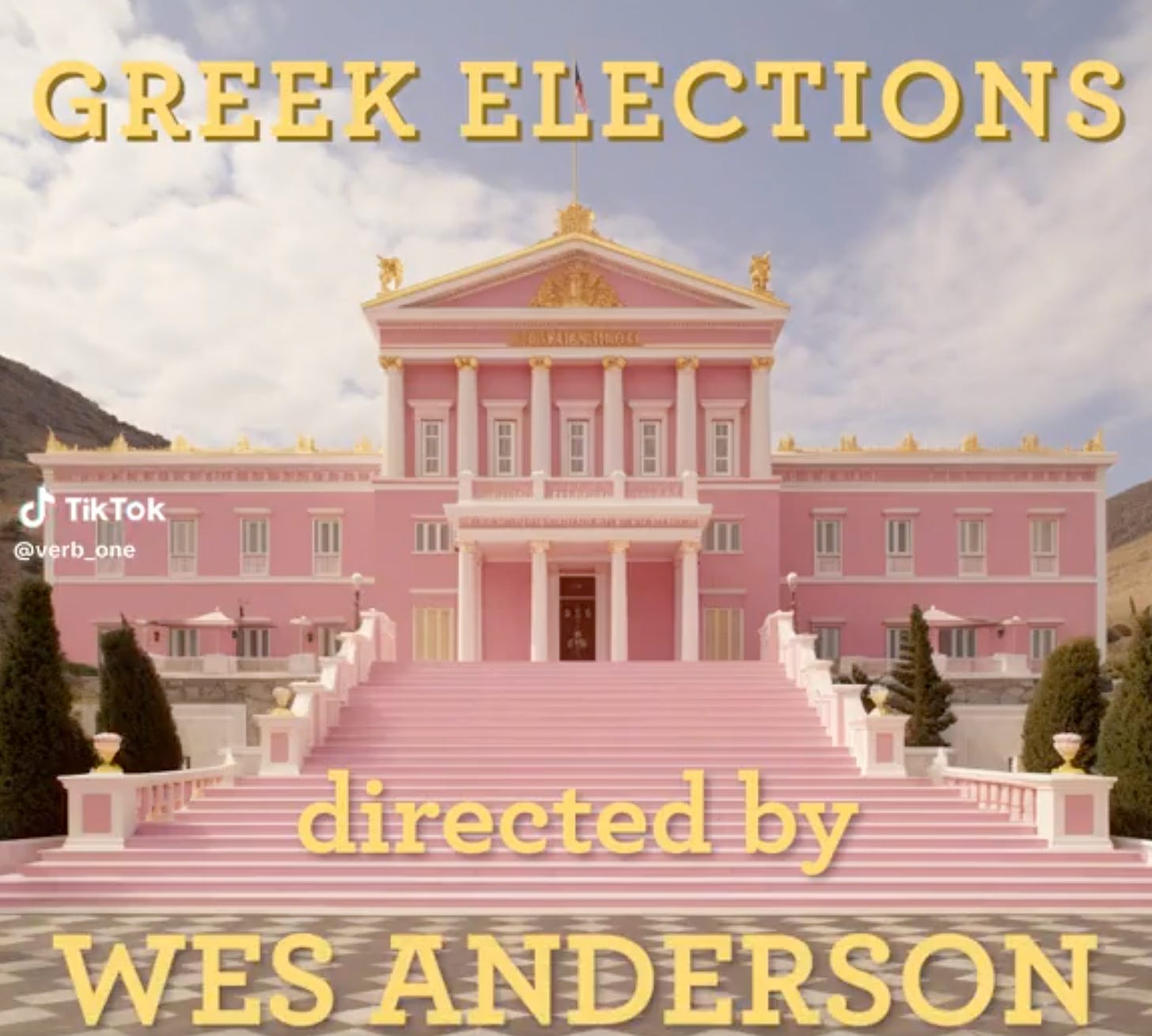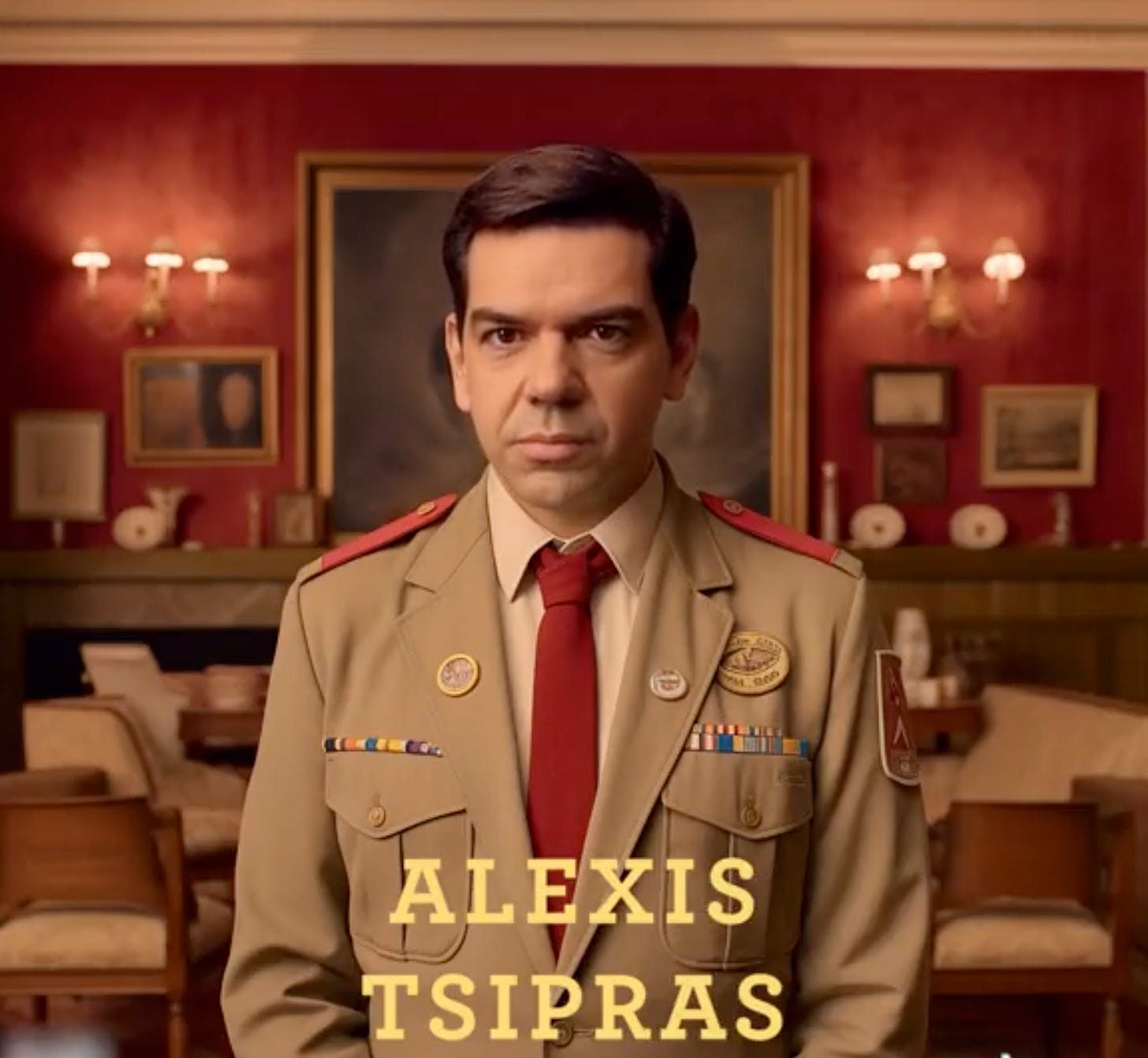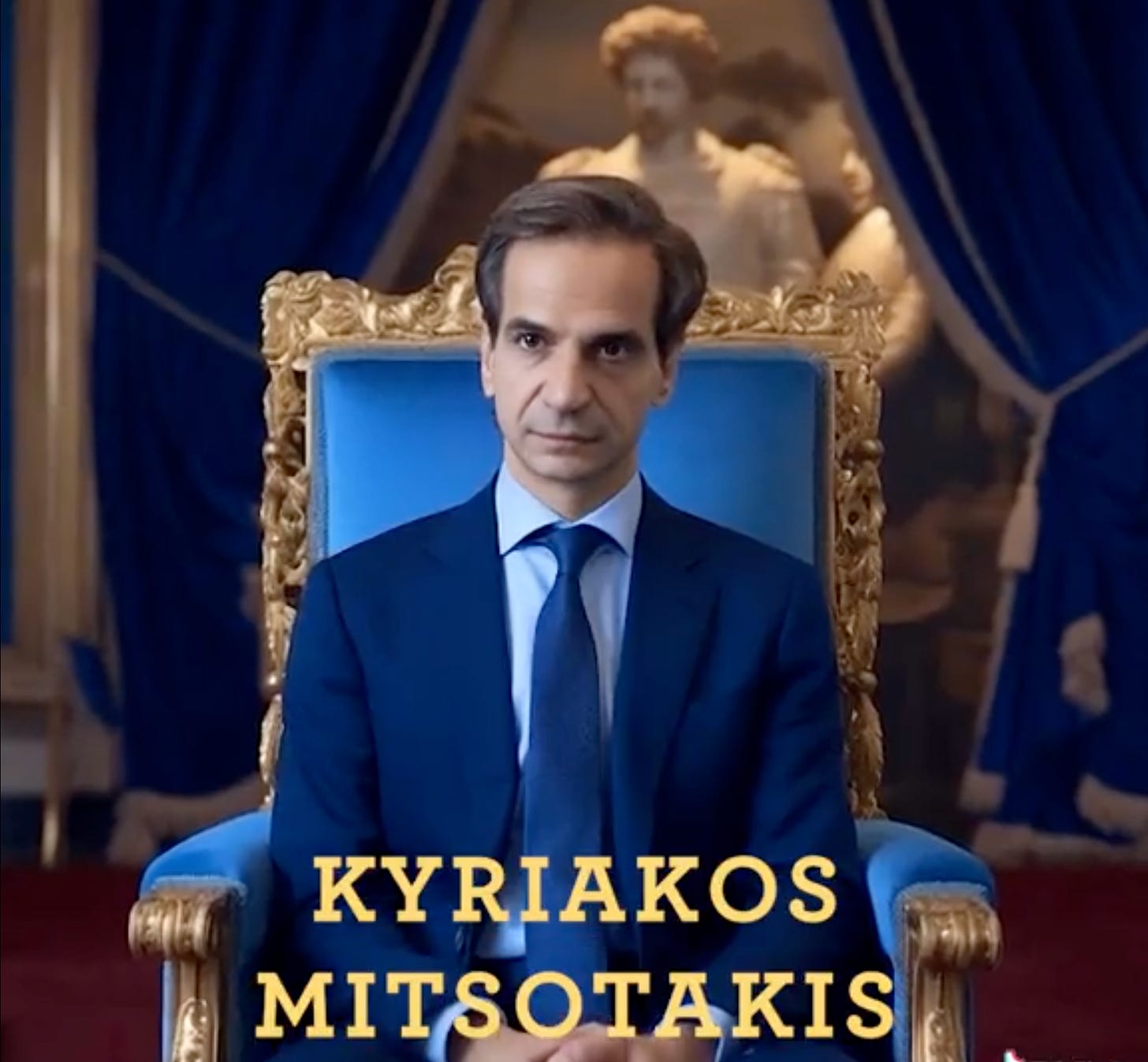Hi.
You are reading Understanding TikTok. My name is Marcus. I am a research fellow at HAW Hamburg on the train with bumpy internet. And in the midst of finally finishing a 60 page dossier on yes, TikTok. Here is your update:
🖥️ Digital News Report 23
🇬🇷 Pathos, Ethos, and Logos
🛎️ What else?
🖥️ Digital News Report 23: Traditional news media are in deep crisis
The 2023 Digital News Report is out (Reuters). And – according to Reuters – traditional news media are in deep crisis while TikTok is the fastest-growing social media platform for news (Reuters). Fewer people trust traditional media, more turn to TikTok for news (Reuters). Worldwide, online news is looking a lot more like TikTok and a lot less like “shared articles”, writes Nieman Lab. TikTok Starts to Replace Traditional News Websites Among Younger Demographics, writes Digital Information World.
I searched for the term “TikTok” in the report which happens to appear 119 times. A new all-time high. Well, prior to 2020 the platform has not been mentioned once with 3 mentions in 2020. Here are some snippets, you can find all including the individual country reports in my Twitter thread.
The Chinese-owned social network reaches 44% of 18–24s across markets and 20% for news. It is growing fastest in parts of Asia-Pacific, Africa, and Latin America. Half of top publishers are now creating content for TikTok. Perhaps the most striking findings in this year’s report relate to the changing nature of social media, partly characterised by declining engagement with traditional networks such as Facebook and the rise of TikTok and a range of other video-led networks.
The most striking finding for me is the proportion that pay attention to each source for news. What does that mean? On Twitter for example users prefer “mainstream news”. On TikTok users prefer “personalities” and “ordinary people”. Compare #103 on political micro- & nano-influencers. If you prefer a journalistic example please compare @CNN and @MaxFosterCNN. It might be a good idea to learn more about how journalistic “personalities” use TikTok. Some examples here: News junkies turn to TikTok to chart new paths in media (Reuters)
🇬🇷 Greek elections on TikTok: Pathos, Ethos, and Logos
Greek parties halted pre-election campaigning on Wednesday (June 14) after hundreds of migrants drowned in a deadly shipwreck off Greece’s southern Peloponnese peninsula (CNN). It may be “the worst tragedy ever” in the Mediterranean sea, according to the EU Commissioner for Home Affairs Ylva Johansson (CNN). That has neither stopped Prime Minister of Greece Kyriakos Mitsotakis of the liberal-conservative party New Democracy, nor leader of the opposition Alexis Tsipras of the social democratic party Syriza to post on TikTok in order to discuss the national health service or take viewers backstage of political events.
A snap parliamentary election will be held in Greece on 25 June 2023. All 300 seats in the Hellenic Parliament will be contested. Prime Minister Kyriakos Mitsotakis called for the snap vote after the May 2023 Greek legislative election did not result in any party gaining a majority, although his centre-right New Democracy made unanticipated gains and increased its share of the vote. As a result, no coalition government was formed by any of the parties eligible to do so.
In April Prime Minister Kyriakos Mitsotakis has attempted to justify on the reason why he uses TikTok despite his own cabinet being banned from having the app on their mobile phones (Greek City Times). The reason is pretty obvious: According to 2022 TikTok data, Greece had 2.6 monthly active users, equivalent to 25% of the country’s electorate. The Gen Z group, some 400,000 of Greeks eligible to vote, would do so for the first time, and also dominate the use of TikTok with 44 per cent of total Greek users (Politico). And yes, there is a Wes Anderson trend AI video on TikTok (Greek City Times). And a TikTok Elections Center – as usual.
In order to study and evaluate the political campaigns on TikTok Zamora-Medina, Suminas and Fahmy suggest a visual, quantitative analysis of the three classical persuasion appeals—pathos, ethos, and logos “to fill the gap in the comparative research into the practical uses of TikTok in different political contexts”. In the context of “pop politics” and “politainment” they have explored the differences between political parties and political leaders in terms of digital persuasion on TikTok in Spain and Poland: Zamora-Medina, R., Suminas, A., & Fahmy, S. S. (2023). Securing the youth vote: A comparative analysis of digital persuasion on TikTok among political actors. Media and Communication, 11(2), 218-231.
🛎️ What else?
* New bill in Senate could address TikTok security concerns without a ban (CNN)
* A Simple Way to Regulate TikTok (Politico)
* TikTok to invest billions of dollars in Southeast Asia to boost e-commerce (Reuters)
* Scottish camping pensioner is TikTok hit age 74 (BBC)
* Come take a shit with me (Dazed)
* Call for paper: TikTok Creators & Digital Economies Symposium (Twitter)
Anything you would like me to cover? Any questions? Happy to discuss in the comments. And now please recommend this newsletter to a person you know. Thanks so much! Speak soon. Ciao, Marcus.




